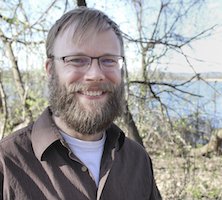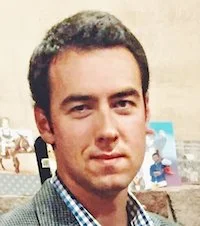Research Affiliates
Cheetah House is affiliated with an interdisciplinary team of researchers whose work informs how we describe and respond to meditation-related challenges.
The team includes three clinically-trained psychologists, a neuroscientist, and four religious studies scholars with expertise in contemplative practices, all of whom have conducted research and written scholarly articles on meditation-related challenges.
Some research affiliates are available for professional consultations and trainings, others lead online special topics presentations, while some remain quietly in the background, working diligently to conduct research that can inform best practices on how to navigate meditation-related challenges.
Willoughby Britton Ph.D.
Willoughby Britton Ph.D. is a an Associate Professor of Psychiatry and Human Behavior at Brown University Medical School, an Assistant Professor of Behavior and Social Sciences in Brown University’s School of Public Health and the Director of Brown’s Clinical and Affective Neuroscience Laboratory.
Dr. Britton earned a Ph.D. in clinical psychology from the University of Arizona. She completed her clinical residency in behavioral medicine and neuropsychology, and a 2 year NIH-sponsored post-doctoral fellowship in adult mood disorders treatment research at Brown University Medical School. She has received multiple grants from the National Institutes of Health to study the effects of meditation.
Her clinical neuroscience research investigates the effects of contemplative practices on the brain and body in the treatment of mood disorders, trauma and other emotional disturbances. She is especially interested in practice-specific effects, and moderators of treatment outcome, or in other words “Which practices are best or worst suited for which types of people or conditions and why”. She recently completed “The Varieties of Contemplative Experience” study which investigates the full range of experiences that can arise in the context of contemplative practices, including experiences that could be considered difficult, challenging or adverse.
As a clinician, she has been trained as an instructor in Mindfulness-Based Stress Reduction (MBSR) and Mindfulness-based Cognitive Therapy (MBCT), and has taught mindfulness to both clinical and non-clinical populations. She has also completed three years of training for treating trauma and destabilized nervous systems. She now specializes in helping meditators who are experiencing meditation-related difficulties, and providing meditation safety trainings to providers and organizations.
Professional Consultation Services
-
Individual mentoring of meditation teachers
-Creating a safety plan (including informed consent, screening, monitoring, management)
-Risk assessment and mitigation
-Trauma-informed mindfulness modifications
-
Curriculum and materials review
Is my mindfulness program sufficiently secular?
Is my program evidence-based? Are my claims and advertisements accurate?
Is my curriculum trauma-informed? What modifications should I consider?
-
Services include consultation about best practices for safety monitoring in the context of meditation-related clinical trials and research studies. The scope of services will be determined at the initial consultation, but may include assistance with:
-informed consent,
- screening and risk assessment
-monitoring and measurement of adverse events;
-trauma-informed modifications, instructor education/training;
-clinical management/referrals;
-NIH Data Safety Monitoring Board Plan that is consistent with CONSORT Harms criteria, approved by OCRA and Westat
-assistance with analysis, report/manuscript writing or CONSORT consistent reporting of adverse event data.
-
Meditation-Related Adverse Effects Scale (MRAES) is a 10 item scale available to researchers. You can access the MRAES and manual by filling out this request form. If you want Dr. Britton’s input or a more official collaboration, please sign up for a consultation
Jared Lindahl, Ph.D.
Jared Lindahl is Visiting Assistant Professor in Brown University’s Department of Religious Studies and director of the humanities research track in the Clinical and Affective Neuroscience Lab. Since 2014, Dr. Lindahl has been directing the data collection, qualitative analysis, and writing of papers for the Varieties of Contemplative Experience research project. Jared holds a Ph.D. in Religious Studies from the University of California, Santa Barbara.
His ongoing research examines contemplative practices in a range of contexts—from classical Greece, India, and Tibet to Buddhist modernism and the mindfulness movement in the United States—and attempts to integrate historical and textual studies of contemplative traditions with phenomenological and neurobiological approaches in order to investigate the relationship between contemplative practices, resultant experiences, and culturally situated appraisals of meaning and value.
David Cooper, MA
David J. Cooper has worked on the Varieties of Contemplative Experience study since 2014 and has been involved with most aspects of the project, including leading practitioner and expert interviews, as well as developing and implementing the qualitative coding structure. He received an M.A. in Religious Studies from the University of California, Santa Barbara, where he focused on Buddhist traditions. David is interested in narrative and social dimensions of religious experience, particularly those relating to the sense of self, the body and energy-like somatic experiences (ELSEs). His published work prior to joining the VCE study has focused on the social uses of humor in religious narratives and communities. He has a wide range of experience both practicing with and studying contemplative communities in Asia, North America, Europe and the Middle East. He was the lead author on the 2021 VCE paper “Like a Vibration Cascading through the Body”: Energy-Like Somatic Experiences Reported by Western Buddhist Meditators”.
Nathan Fisher, Ph.D.
Dr. Fisher recently received his PhD in Religious Studies and Cognitive Science from the University of California, Santa Barbara. He graduated from Vanderbilt University in 2011 and then joined the Clinical and Affective Neuroscience Laboratory at Brown University where he managed the 'Varieties of Contemplative Experience' (VCE) study from 2012-2015. Before starting graduate school, he was a visiting scholar at the Mind and Life Institute—where he organized a small conference on Abrahamic contemplative traditions—and lived in Jerusalem for 2 years to explore some of the living traditions of Jewish mysticism and meditation.
At Brown, Nathan began a replication study of the VCE project investigating meditation-related difficulties in Jewish, Christian, and Islamic contemplative traditions, and has continued this research project into his PhD program. The first paper based on the study, "Dark Nights of the Soul in Abrahamic Meditative Traditions," was published in 2019 and the second came out in 2022, “Flavors of Ecstasy: States of Absorption in Islamic and Jewish Contemplative Traditions.” Both papers focus on traditional appraisal processes related to challenging experiences, whereas in his dissertation he presents phenomenological data from the qualitative study and proposes a person-centered cultural psychological framework that can be used by clinicians and teachers to provide better care for those suffering from these experiences. His other research interests include: Comparative Mysticism, Differential Diagnosis at the intersection of Spirituality and Clinical Practice, and the emerging field of Contemplative Science.
Nathan offers consultations for individuals and organizations involved with contemplative practice in Jewish, Christian, and Islamic traditions.
Professional Consultation Services
Nathan offers consultations for individuals and organizations involved with contemplative practice in Jewish, Christian, and Islamic traditions
-
For Individuals practicing in Jewish, Christian, or Islamic contemplative traditions:
What kind of adverse effects are documented in my tradition?
What do certain experiences mean or how are they interpreted in my tradition?
What are the recommended remedies or modifications in my tradition?
-
For organizations involved with contemplative practice in Jewish, Christian, and Islamic traditions:
What are the adverse effects of Abrahamic contemplative practices?
How do we minimize adverse effects at our organization?
How should we handle adverse effects if they do occur?
Curriculum + materials review
Curriculum development,
teacher training
Nick Canby, Ph.D
Nick received his PhD in clinical psychology from Clark University in 2022 , and completed his clinical internship at the VA hospital in Tucson Arizona. Nick’s dissertation investigated changes in sense of self, specifically dissolution of self-world and self-other boundaries from multiple causes, including meditation, religious practice, psychedelics, trauma, and then assessed what factors predict life enhancing vs destabilizing trajectories. He was lead author on a study that found that social factors, specifically group cohesion and relationship with the teacher, were better predictors of therapeutic success than type or amount of meditation practice. He is currently a post-doctoral fellow in the Clinical and Affective Neuroscience Laboratory with Dr. Britton and Dr. Lindahl on projects related to understanding the complex symptoms and life trajectories of meditators in distress. Nick has clinical experience using evidence-based treatments for a range of clinical presentations. While my background training is in Acceptance and Commitment Therapy (ACT) and Cognitive Behavioral approaches, I am flexible and currently learning Somatic Experiencing approaches to working with meditators and trauma from Dr. Britton. I personally have over 10 years of meditation experience and knowledge of Buddhist philosophy and traditions. I use this, along with my clinical and research training, to understand and contextualize where meditators-in distress are coming from and what approaches will be helpful.




